People need a healthy body and healthy organs to survive. The inability of even a single cell in the body to function brings along diseases. Many of our organs are vital to us. One of them is kidneys, which are two in every healthy individual.
- How Do I Prepare for a Kidney Transplant?
- Who Needs Kidney Transplantation?
- How is Kidney Transplant Performed?
- What are the Risks of Kidney Transplantation for the Donor?
- What Happens During a Kidney Transplant?
- Complications Of the Procedure
- What Should Be Done After the Transplant?
- Anti-rejection Medication Side Effects
- Living Kidney Donation
- Coping and Support
- Diet and Nutrition
- Exercise After Kidney Transplant
- Kidney Transplant Prices in Turkey
- Who Cannot Get a Kidney?
- How Many Hours Does Take a Kidney Transplant?
- Do The Wife and Husband Give a Kidney to Each Other?
The kidneys form a large part of the excretory system. Kidneys, which act as filters in the body of the person, filter the harmful substances in the blood and throw them out through the urine.
In some cases, the kidneys of the person go bankrupt and they cannot function half or fully. In this case, the excretory system is continued with a device called dialysis instead of the kidneys. Patients who have to undergo dialysis at certain intervals lose a lot of time and effort during this process. Although dialysis is not a long-term treatment method, even worsening of the person’s condition may occur.
In this case, a surgical operation called a kidney transplant comes into play. By surgically transplanting the kidney of a living or deceased donor, who is still active, to a person with kidney failure, the person can return to a healthy normal life.
For this, it is necessary to have kidneys suitable for the body. In some cases, the body rejects these kidneys. In order to avoid this situation and to make the kidney immune to the body, immunosuppressive drugs can be used under the control of a doctor after the operation.

How Do I Prepare for a Kidney Transplant?
A kidney transplant is a major surgery that can give you a new lease on life. But it’s important to be prepared for both the surgery and the recovery process. Here are some tips on how to get ready for a kidney transplant:
- Get as healthy as possible. This means eating a healthy diet, exercising regularly, and losing weight if you’re overweight or obese. It’s also important to quit smoking and drinking alcohol.
- Get your finances in order. Kidney transplants are expensive, and you’ll need to make sure you have insurance coverage in place. You may also need to take unpaid time off work to recover from surgery.
- Build a support system. Having the support of family and friends is essential during and after a kidney transplant. Make sure you have people who can help you with things like transportation, cooking, and childcare.
In addition to these general tips, there are some specific things you can do to prepare for your kidney transplant surgery:
- Get a thorough medical evaluation. Your transplant team will need to do a complete physical exam and order a variety of tests to make sure you’re healthy enough for surgery.
- Meet with your transplant team regularly. Your transplant team will educate you about the surgery and recovery process. They will also answer any questions you have and help you prepare for the big day.
- Follow your transplant team’s instructions carefully. In the weeks leading up to surgery, you’ll need to follow your transplant team’s instructions carefully. This may include taking certain medications, changing your diet, and avoiding certain activities.
On the day of surgery, you’ll be admitted to the hospital and given anesthesia. The surgeon will then make an incision in your abdomen and remove your diseased kidney. The new kidney will then be placed in your abdomen and connected to your blood vessels.
After surgery, you’ll spend several days in the hospital recovering. During that time, you’ll be monitored closely by your transplant team. You’ll also need to learn how to care for your new kidney.
Once you’re discharged from the hospital, you’ll need to continue to follow your transplant team’s instructions. This will include taking medications to prevent your body from rejecting the new kidney. You’ll also need to attend regular follow-up appointments with your transplant team.
Preparing for a kidney transplant can be overwhelming, but it’s important to remember that you’re not alone. Your transplant team is there to support you every step of the way.
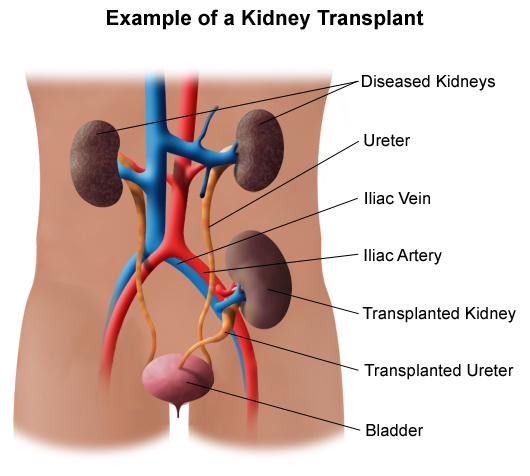
Who Needs Kidney Transplantation?
Kidney transplantation is an operation attempt that is a glimmer of hope for kidney patients. This transplant is applied to sick individuals and the patient is expected to return to his daily life. People who have been diagnosed with kidney failure are asked by the doctor whether they want a transplant.
If the patient accepts the kidney transplant, his name is added to the list of other patients waiting for the transplant. The patient goes on dialysis until it is his turn and a suitable organ is found, and continues to have the device perform the function of his kidneys.
This process does not end with the patient’s acceptance and the discovery of the kidney. The person should not have serious health problems that will remove this heavy surgery. For example, this transplant is not applied to individuals who have been treated for cancer before or who are actively cancer patients. Likewise, some serious diseases such as infectious disease in the bones and hepatitis B disease are diseases that will pose a risk for this transplant.
If you do not have a serious disease other than kidney failure and there is no result that prevents you from undergoing surgery, you can have this transplant.
The life after the transplant is also very important. In order to prevent rejection of the kidneys by the immune system after the operation, you should follow the doctor’s advice and rules.
How is Kidney Transplant Performed?
A kidney transplant is a very serious operation. This transfer is carried out in two ways. Either a living donor wants to donate their kidney or it is taken from dead individuals who are not alive and have donated their organs.
The operation is started by making a plan for this operation with the person, doctor, and patient who wants to donate kidneys voluntarily. While this surgery proceeds on a planned basis, in kidney transplants to be taken from the dead body, the surgery is performed urgently without a plan.
The surgery should be started quickly so that the organs are taken from individuals who have brain death, such as having had an accident, but all of their organs are healthy and do not lose their functionality.
In both of these methods, the patient is treated with general anesthesia. Incisions are made from the abdomen and the healthy organ is transplanted to the person. If the unhealthy organ will not harm the patient, it is left inside and the operation continues.
During these procedures, the doctor carefully and meticulously stitches the veins together. After the planting process, blood flow begins between the kidney and the veins. The ureter of the healthy kidney is then connected to the bladder. After this procedure, the patient can start to urinate in a healthy way.
There is a risk of complications in kidney transplantation, which is a very serious surgical intervention. The patient may not be able to handle the anesthesia. During the operation, the patient may experience heavy bleeding. There is a risk of encountering problems such as clots, leaks, and clogging. Finally, there may be the problem of rejection of the transplanted kidney by the body. This and all risks that may occur like this should be shared with the patient. After their acceptance, the patient should be operated on.

What are the Risks of Kidney Transplantation for the Donor?
The person who is referred to as the hero in kidney transplant surgeries will undoubtedly be the person who donates the organ. The donor who gives a new life to the patient is very valuable to everyone. Before the surgery, detailed tests and examinations are carried out for the person who wants to donate. Risks are reviewed for each possible situation.
After these tests, the council meeting at the hospital decides whether the kidney will be taken from the donor. So this is not a simple process for the doctor, patient, and donor to decide. After the surgery is approved, all risks are explained to the patient and the donor.
As with any surgery, there are certain risks in this surgery. However, as a result of research, it has been proven that only one in 3,000 patients died during this surgery.
Complications such as wound formation, and urinary tract infection may develop. While the donor is discharged within 4-5 days after the surgery, there may be some complaints of pain. Full recovery occurs after two months and the donor can return to his routine life after 2 months.
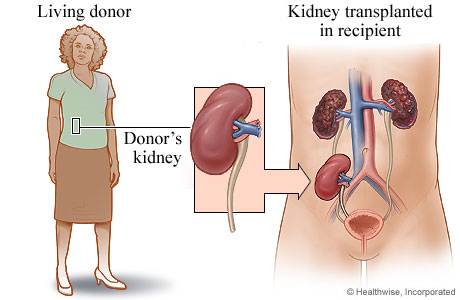
What Happens During a Kidney Transplant?
A kidney transplant is a major surgery to replace a diseased or failing kidney with a healthy kidney from a donor. Kidney transplants are performed when other treatments for kidney failure, such as dialysis, are no longer effective.
Before the surgery
Before surgery, you will meet with your transplant team to discuss the procedure and prepare for your hospital stay. You will also need to undergo a series of tests to make sure you are healthy enough for surgery.
During the surgery
Kidney transplant surgery is typically performed under general anesthesia. The surgeon will make an incision in your lower abdomen and place the new kidney in your body. The new kidney will be attached to your blood vessels and bladder.
The surgery usually takes about three to four hours. After surgery, you will be taken to the recovery room to be monitored.
After the surgery
You will spend several days in the hospital recovering from surgery. During that time, you will be monitored closely by your transplant team. You will also need to learn how to care for your new kidney.
Once you are discharged from the hospital, you will need to continue to follow your transplant team’s instructions. This will include taking medications to prevent your body from rejecting the new kidney. You will also need to attend regular follow-up appointments with your transplant team.
What to expect during kidney transplant surgery
Here is a more detailed overview of what to expect during kidney transplant surgery:
- You will be given general anesthesia and placed on a ventilator.
- The surgeon will make an incision in your lower abdomen.
- The surgeon will remove your diseased kidney.
- The surgeon will place the new kidney in your abdomen and attach it to your blood vessels and bladder.
- The surgeon will close the incision.
After surgery, you will be taken to the recovery room to be monitored. You will be given pain medication and fluids. You may also need to use a catheter to drain urine from your bladder.
You will typically stay in the hospital for three to five days after surgery. During that time, you will be monitored closely by your transplant team. You will also learn how to care for your new kidney.
Recovery from kidney transplant surgery
Recovery from kidney transplant surgery can take several weeks or months. During that time, you will need to take medications to prevent your body from rejecting the new kidney. You will also need to attend regular follow-up appointments with your transplant team.
Most people who have kidney transplants are able to return to their normal activities within a few months of surgery. However, it is important to follow your transplant team’s instructions carefully and to get plenty of rest.
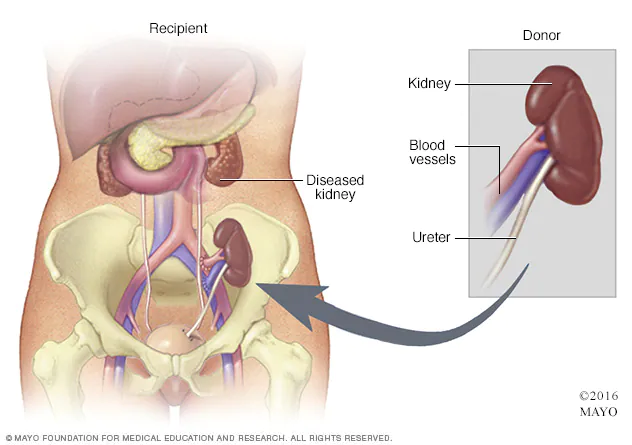
Complications Of the Procedure
Kidney transplant surgery is a major surgery with a number of potential complications. Some of the most common complications include:
- Bleeding and infection. These are the most common complications of any surgery.
- Rejection. This is a condition in which your body attacks the new kidney. Rejection can occur at any time after surgery, but it is most common in the first few months.
- Narrowing or blockage of the blood vessels to the new kidney. This can reduce blood flow to the kidney and damage it.
- Urine leakage. This can occur if the tube that carries urine from the new kidney to the bladder is damaged.
- Medication side effects. The medications used to prevent rejection can have a number of side effects, such as high blood pressure, diabetes, and bone loss.
Less common complications of kidney transplant surgery include:
- Cancer. People who have kidney transplants are at an increased risk of developing cancer, especially lymphoma and non-Hodgkin lymphoma.
- Heart attack. People who have kidney transplants are also at an increased risk of developing heart disease and having a heart attack.
- Stroke. People who have kidney transplants are also at an increased risk of having a stroke.
The risks of kidney transplant surgery vary depending on a number of factors, including your age, overall health, and the type of kidney transplant you have. Your transplant team will discuss the risks and benefits of surgery with you before you make a decision.
How to reduce your risk of complications
There are a number of things you can do to reduce your risk of complications after kidney transplant surgery:
- Follow your transplant team’s instructions carefully. This includes taking your medications as prescribed and attending all of your follow-up appointments.
- Eat a healthy diet and exercise regularly. This will help to keep you healthy and reduce your risk of developing complications such as high blood pressure, diabetes, and heart disease.
- Get enough sleep. Sleep is important for healing and recovery.
- Avoid smoking and drinking alcohol. Smoking and drinking alcohol can damage your new kidney and increase your risk of complications.
If you experience any complications after kidney transplant surgery, it is important to see your transplant team right away. Early treatment can help to prevent serious problems.

What Should Be Done After the Transplant?
Kidney transplantation is a very serious operation and the patient should be followed very closely after transplantation. The patient stays in the hospital for 7 days in case of any adverse situation that may occur after the surgery.
Dialysis may be needed for a while after the transplant. Some time should be allowed for the new kidney to get used to the body and continue its process. After the surgery, the person can start to urinate.
At the end of the 2-month period following the end of the surgery, the patient can return to his routine life. However, the risk of kidney rejection should be kept under control by keeping the patient and kidney under close follow-up. In order to prevent this from occurring, medications that the patient should use for life can be given. Thanks to these drugs, the body does not reject the kidney.
Anti-rejection Medication Side Effects
Anti-rejection medications are used to prevent your body from rejecting your new kidney after a transplant. These medications are very effective, but they can also have a number of side effects.
The most common side effects of anti-rejection medications include:
- High blood pressure
- High cholesterol
- Diabetes
- Bone loss
- Increased risk of infection
- Hair loss
- Tremors
- Headaches
- Nausea
- Vomiting
- Diarrhea
Less common side effects of anti-rejection medications include:
- Cancer
- Heart disease
- Stroke
- Liver damage
- Kidney damage
- Pancreatitis
- Neurological problems
The side effects of anti-rejection medications can vary depending on the type of medication you are taking and your individual response to the medication. Your transplant team will monitor you closely for side effects and adjust your medication as needed.

How to reduce your risk of side effects
There are a number of things you can do to reduce your risk of side effects from anti-rejection medications:
- Follow your transplant team’s instructions carefully. This includes taking your medications as prescribed and attending all of your follow-up appointments.
- Eat a healthy diet and exercise regularly. This will help to keep you healthy and reduce your risk of developing side effects such as high blood pressure, high cholesterol, and diabetes.
- Get enough sleep. Sleep is important for healing and recovery.
- Avoid smoking and drinking alcohol. Smoking and drinking alcohol can damage your new kidney and increase your risk of side effects.
If you experience any side effects from anti-rejection medications, it is important to see your transplant team right away. They can help you to manage your side effects and adjust your medication as needed.
Living Kidney Donation
Living kidney donation is a surgery to remove a kidney from a living person and transplant it into someone with kidney failure. It is the most common type of kidney transplant and offers the best chance for a successful outcome.
Who can be a living kidney donor?
To be a living kidney donor, you must be at least 18 years old and in good health. You also need to be compatible with the recipient, which means that your blood type and tissue type must match.
What are the risks and benefits of living kidney donation?
Living kidney donation is a major surgery, but the risks are generally low. The most common complications include bleeding, infection, and pain. There is also a small risk of long-term complications, such as high blood pressure, kidney disease, and heart disease.
The benefits of living kidney donation outweigh the risks for most people. Living kidney donors have a longer life expectancy and better quality of life than people who donate kidneys after death. Living kidney donors also help the recipients to live longer and healthier lives.
How does living kidney donation work?
The living kidney donation process begins with a thorough evaluation of the donor and recipient. This includes medical tests, psychological counseling, and a meeting with the transplant team.
If the donor is approved, the surgery will be scheduled. The surgery typically takes about four hours and is performed under general anesthesia. The surgeon will make an incision in the donor’s abdomen and remove the kidney. The kidney will then be transplanted into the recipient.
Recovery from living kidney donation
Most living kidney donors are able to go home from the hospital within a few days of surgery. Recovery time varies from person to person, but most donors are able to return to their normal activities within a few weeks.
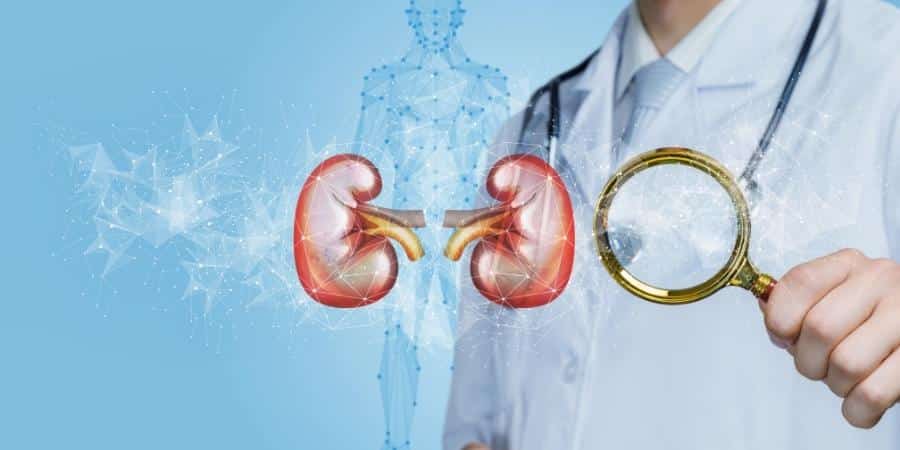
Coping and Support
Coping with a kidney transplant can be challenging, both emotionally and physically. You may experience a range of emotions, such as anxiety, fear, and excitement. You may also need to adjust to a new lifestyle, including taking medications and following a special diet.
Here are some tips for coping and finding support:
- Talk to your transplant team. They can provide you with information and support throughout the transplant process and beyond.
- Join a support group. Support groups can be a great way to connect with other people who have been through the transplant experience. They can offer you emotional support and practical advice.
- Lean on your friends and family. Your loved ones are there for you during this difficult time. Talk to them about how you’re feeling and ask for their help when you need it.
- Take care of yourself. Eating a healthy diet, exercising regularly, and getting enough sleep are all important for your physical and emotional health.
- Find healthy ways to manage stress. Stress can worsen your kidney function, so it’s important to find healthy ways to manage it. Relaxation techniques such as yoga, meditation, and deep breathing can be helpful.
Here are some additional tips for coping with the specific challenges of a kidney transplant:
- Dealing with medication side effects. Anti-rejection medications can have a number of side effects, such as high blood pressure, high cholesterol, and diabetes. It’s important to work with your transplant team to manage your side effects and minimize their impact on your life.
- Adjusting to a new lifestyle. After a kidney transplant, you will need to follow a special diet and take medications for the rest of your life. This can be a big adjustment, but it’s important to remember that these things are necessary to keep your new kidney healthy.
- Coping with emotional challenges. A kidney transplant is a major life event, and it’s normal to experience a range of emotions, both positive and negative. Allow yourself to feel your emotions and don’t be afraid to ask for help from your transplant team or support group.
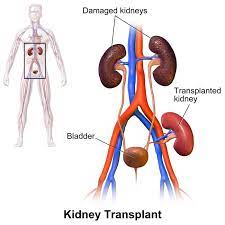
Diet and Nutrition
After a kidney transplant, it is important to follow a healthy diet to help your new kidney function properly. This means eating a variety of nutrient-rich foods and limiting processed foods, sugary drinks, and unhealthy fats.
Here are some general tips for kidney transplant patients:
- Eat plenty of fruits and vegetables. Fruits and vegetables are low in calories and fat and high in vitamins, minerals, and fiber.
- Choose lean protein sources. Lean protein sources, such as chicken, fish, beans, and tofu, are low in saturated fat and cholesterol.
- Limit unhealthy fats. Unhealthy fats, such as saturated and trans fats, can raise your cholesterol levels and increase your risk of heart disease.
- Avoid processed foods and sugary drinks. Processed foods and sugary drinks are often high in unhealthy fats, sugar, and salt.
- Limit salt intake. Too much salt can raise your blood pressure and damage your kidneys.
In addition to these general tips, there are some specific foods and nutrients that kidney transplant patients should pay attention to. Here are a few examples:
- Protein. Protein is important for healing and repairing tissues. However, too much protein can put a strain on your kidneys. Aim for 0.8 grams of protein per kilogram of body weight each day.
- Phosphorus. Phosphorus is a mineral that is important for bone health. However, too much phosphorus can damage your kidneys. Limit your phosphorus intake to 800-1000 milligrams per day.
- Potassium. Potassium is a mineral that is important for fluid balance and muscle function. However, too much potassium can be dangerous for kidney transplant patients. Limit your potassium intake to 2000-2500 milligrams per day.
- Fluid intake. It is important to drink plenty of fluids to help your kidneys function properly. Aim for at least 64 ounces of water per day.
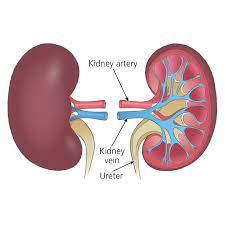
Exercise After Kidney Transplant
Regular exercise is important for everyone, but it is especially important for people who have had a kidney transplant. Exercise can help to improve your cardiovascular health, strengthen your muscles and bones, and reduce your risk of developing chronic diseases such as heart disease, stroke, and diabetes.
When can I start exercising after a kidney transplant?
Most people can start exercising lightly within a few weeks of a kidney transplant. However, it is important to talk to your transplant team before starting any new exercise program. They can help you to determine what type of exercise is safe for you and how much exercise you should be doing.
What type of exercise should I do?
The best type of exercise for kidney transplant patients is moderate-intensity aerobic exercise, such as walking, biking, and swimming. Strength training is also important, but it is important to start slowly and gradually increase the intensity and duration of your workouts.
How much exercise should I do?
Adults should aim for at least 150 minutes of moderate-intensity aerobic exercise or 75 minutes of vigorous-intensity aerobic exercise each week. Children and adolescents should aim for at least 60 minutes of physical activity each day.
Here are some tips for exercising safely after a kidney transplant:
- Start slowly and gradually increase the intensity and duration of your workouts.
- Listen to your body and rest when you need to.
- Drink plenty of fluids before, during, and after your workouts.
- Avoid exercising in extreme heat or cold.
- Wear comfortable clothing and shoes.
- Be aware of the signs of dehydration, such as thirst, dizziness, and lightheadedness.
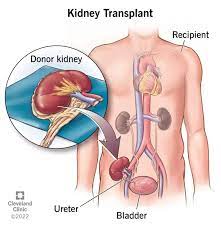
Kidney Transplant Prices in Turkey
It is known that people spend a part of their lives with dialysis devices because their kidneys do not function for a number of reasons. This is a very tiring and time-consuming process.
The solution to this disease is kidney transplantation. Kidney transplantation is an extremely serious and severe surgical intervention. This procedure is performed in Turkey with a high success rate. Turkey, which has made significant progress in the field of medicine in terms of technology, is also known for the skills and experience of doctors.
These experiences also attracted the attention of foreign patients, causing them to prefer Turkey for kidney transplant surgery. Fully equipped hospitals, experienced and talented doctors, and very friendly and helpful staff of hospital staff and caregivers can be shown among the other reasons for preference.
Moreover, with all these, the patient can regain his health at an affordable price. If you also want to have a kidney transplant in Turkey, you can contact us for all your questions and price information.
Who Cannot Get a Kidney?
A number of necessary precautions must be taken for kidney transplantation. It is very important to review all kinds of situations in order to avoid complications during and after the surgery.
The person who will make a donation is also an important detail in the planning of this operation. In some cases, even though the donor wants to be a donor, doctors do not accept it.
- The donor is under the age of 18
- The donor’s hypertension and drug use
- The donor has diabetes
- Having proteinuria, known as excess protein in the urine
- Those who have kidney stone problems again
- those who are pregnant
- those with infectious disease
People who have these and some other health problems mentioned above cannot be donors in kidney transplantation.
How Many Hours Does Take a Kidney Transplant?
A kidney transplant is a major surgery that typically takes between 3 and 4 hours to complete. The exact length of the surgery will vary depending on a number of factors, including the patient’s individual anatomy, the type of kidney transplant being performed, and any complications that may arise.
Steps involved in a kidney transplant:
- The patient is placed under general anesthesia.
- The surgeon makes an incision in the lower abdomen.
- The diseased kidney is removed.
- The new kidney is placed in the abdomen and connected to the blood vessels and bladder.
- The incision is closed.
After the surgery:
- The patient will be monitored in the recovery room for several hours.
- The patient will then be transferred to a hospital room, where they will stay for several days.
- During their hospital stay, the patient will be monitored closely for any complications and will learn how to care for their new kidney.
Most people are able to return home within a week of a kidney transplant. However, it is important to follow your doctor’s instructions carefully and to get plenty of rest during the recovery period.
Do The Wife and Husband Give a Kidney to Each Other?
Yes, wives and husbands can give kidneys to each other. In fact, spousal kidney transplants are one of the most common types of living donor transplants.
There are several advantages to spousal kidney transplants. First, spouses are more likely to be compatible donors than other living donors. Second, spouses are often already emotionally and practically prepared to support each other through the transplant process.
However, there are also some potential disadvantages to spousal kidney transplants. One concern is that if one spouse’s kidney fails, the other spouse’s kidney may also fail. Additionally, spousal kidney transplants can put a strain on the relationship between the spouses.
If you are considering a spousal kidney transplant, it is important to talk to your doctor about the risks and benefits. You should also talk to a transplant counselor to get support and guidance.

Vimfay International Health Services